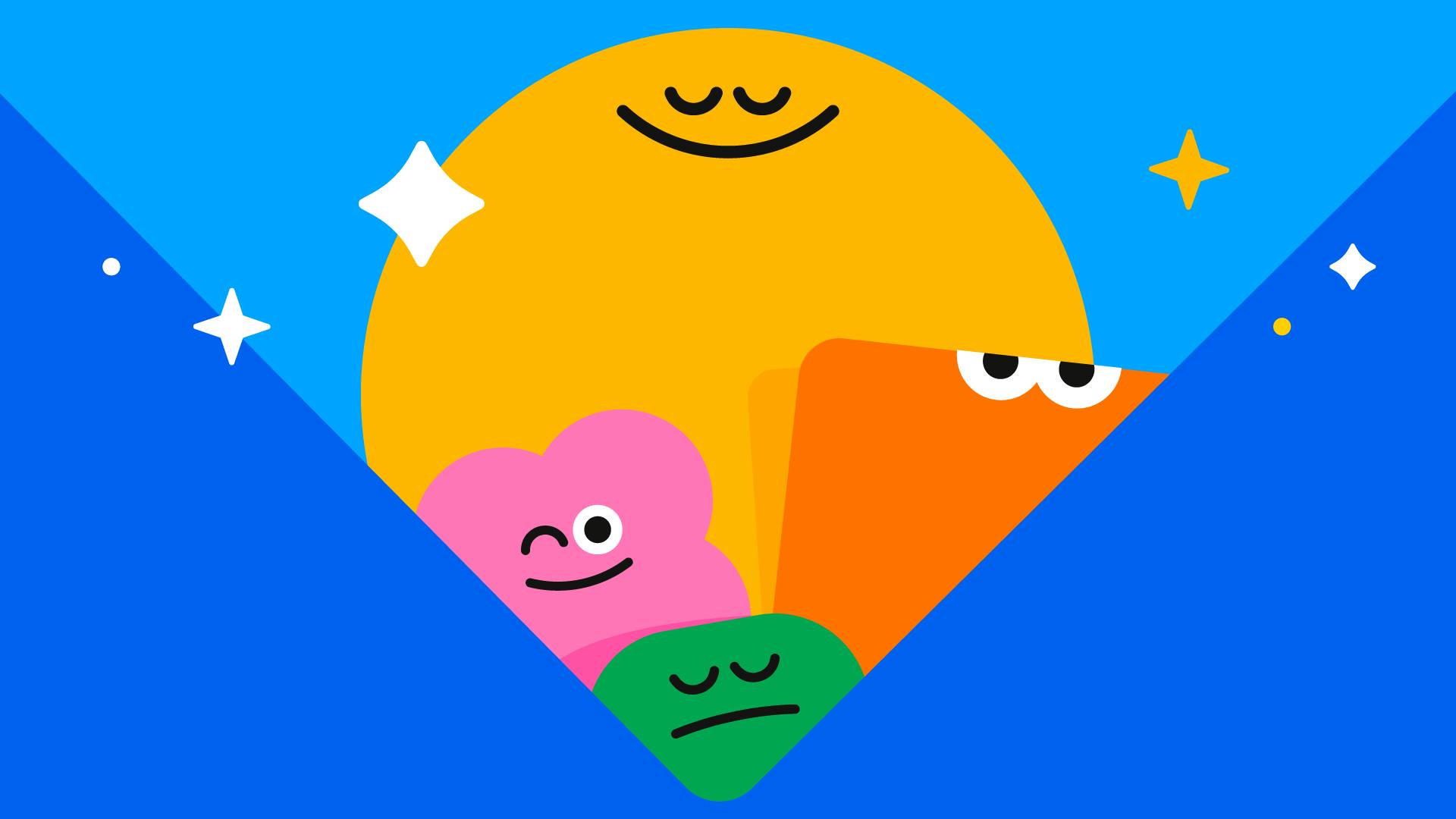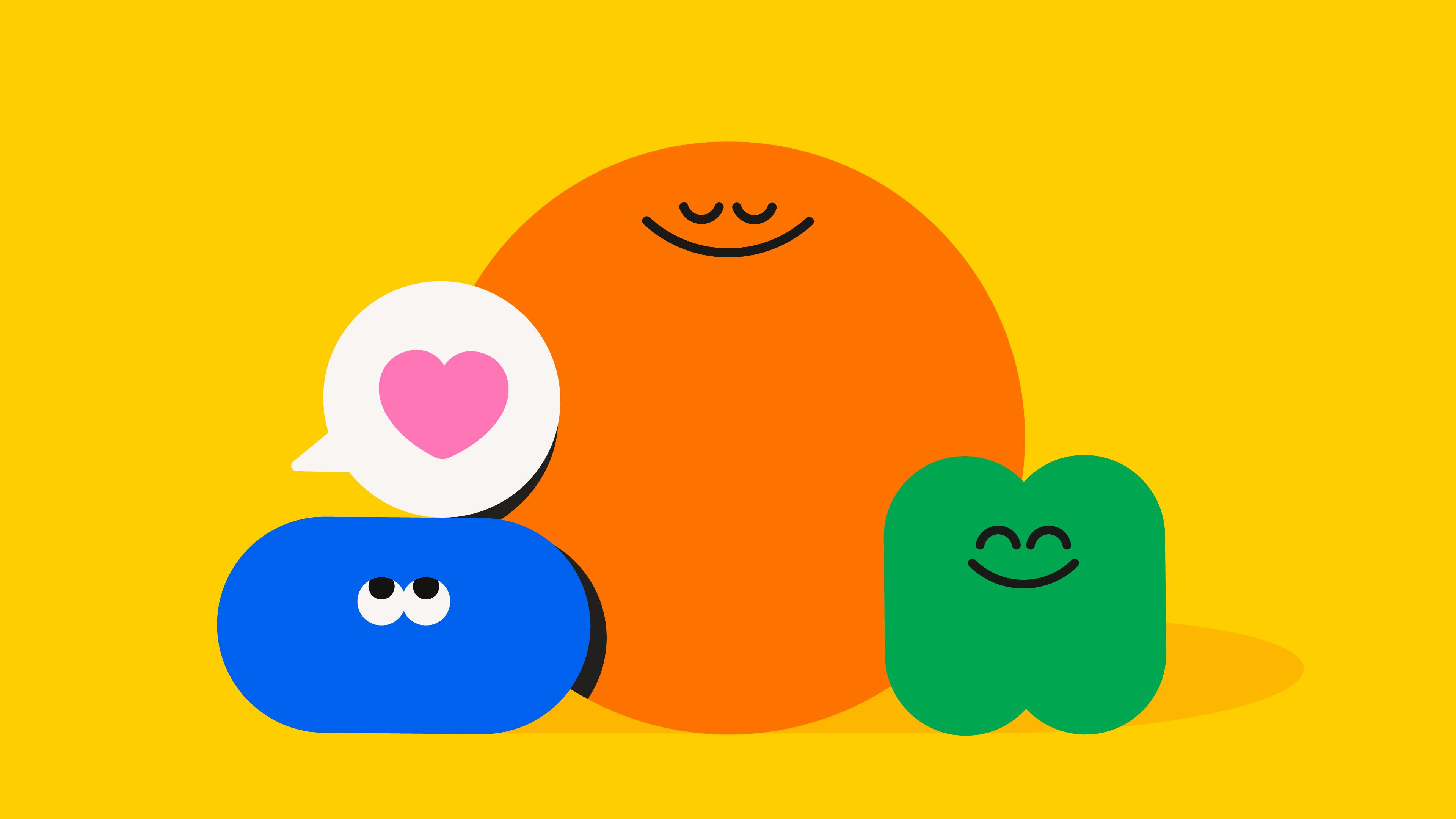What is social isolation?
Published Feb 19, 2020 | Updated Jan 12, 2026
Written by Headspace Editorial Team
What is social isolation?
Human beings are wired for social connection, yet more and more adults are experiencing periods of separation from meaningful relationships and community. This lack of social interaction and reduced social contact is known as social isolation, and it can have serious consequences for both physical and mental health.
“Loneliness can be toxic to the body,” says Carolina Osorio, MD, a geriatric psychiatrist at Loma Linda Behavioral Health Institute. “We see this in our elderly patients, but we know it can impact anyone who is disconnected from the people around them.” Indeed, isolation isn’t limited to one age group—its impact is felt by individuals across all walks of life.
A June 2020 study from the Johns Hopkins Bloomberg School of Public Health showed that the number of US adults reporting symptoms of mental and psychological distress during COVID-19 went from 3.9 percent in 2018 to a staggering 13.6 percent in April 2020. What’s more, 24 percent of adults aged 18-29 have reported mental distress in 2020 versus 3.7 percent in 2018.
Try a free meditation to help with feelings of anxiety
By making daily meditation as much a priority as wearing masks and washing hands, we can protect our mental health and have a much better chance of fighting depression and everyday anxiety.
The risks of social isolation on mental health
Humans are social animals by nature. It’s in friendship, community, and support networks where people foster strong bonds, and where their emotional moods can be boosted by a shared experience, a sense of togetherness, or camaraderie.
The importance of regular social connection cannot be overstated, and the science backs this up again and again.
Multiple studies over the years demonstrate how detrimental isolation can be for people’s mental health. Loneliness has strong links to depression, poor immune function, and a decline in cognitive ability. Simply put, our happiness and health depend on the relationships we enjoy, cultivate, and rely on with other people.
Getting Real About Loneliness | Headspace Conversations
7 minutes
A study on loneliness from Harvard University
One of the most in-depth and long running studies, the Harvard Study of Adult Development, shows how relationships underpin our well-being, and how damaging social isolation can be.
By following the lives of 268 Harvard sophomores over 80 years, researchers found the men (Harvard didn’t accept women when the study began in 1938) who were healthiest were those satisfied with the relationships in their lives. “The surprising finding is that … how happy we are in our relationships has a powerful influence on our health,” said study director and professor of psychiatry Robert Waldinger. “Taking care of your body is important, but tending to your relationships is a form of self-care, too. That, I think, is the revelation.”
The study showed that these social relationships were the most important factor in predicting a long and happy life, more than, say, genetics, money, or class.
“When we gathered together everything we knew about them at age 50, it wasn’t their middle-age cholesterol levels that predicted how they were going to grow old,” Waldinger said. “It was how satisfied they were in their relationships. The people who were the most satisfied in their relationships at age 50 were the healthiest at age 80. The clearest message that we get from this 75-year study is this: Good relationships keep us happier and healthier. Period.
“Many of our men when they were starting out as young adults really believed that fame and wealth and high achievement were what they needed to go after to have a good life. But over and over, over these 75 years, our study has shown that the people who fared the best were the people who leaned into relationships, with family, with friends, with community,” he added.
The relationship between mental health and social isolation
Prolonged social isolation has serious consequences for mental health. When individuals are cut off from family, friends, or their community, the absence of social connection can lead to increased anxiety, depression, and even long-term cognitive decline. Research shows that people without strong relationships or social support are at higher risk of developing mental health problems, while those who nurture meaningful connections enjoy better emotional resilience and improved overall health. Humans are inherently social beings, and regular social activity—whether through conversations, shared activities, or simply being around others—plays a protective role in daily life. The evidence is clear: fostering strong relationships isn’t just about happiness; it’s an important part of maintaining both emotional balance and physical well-being, while also helping to let go of stress.
What are the signs of social isolation?
Recognizing the signs of isolation is the first step toward seeking help. Warning signals may include:
Avoiding social interactions
Skipping social activities
Neglecting personal hygiene
Withdrawing from hobbies
Feeling persistently disconnected—even when surrounded by other people
These changes often surface in subtle ways: a person who once enjoyed community gatherings may suddenly stop attending, or adults may withdraw from their family or friends. Prolonged feelings of disconnection can intensify stress and heighten the risk of depression and anxiety. Paying attention to shifts in routines, mood, or engagement in daily life is essential. Gentle awareness and compassion—whether for yourself or for a family member—can open the door to early interventions, stronger social support, and healthier relationships.
Meditation for loneliness and social isolation
A lot of the circumstances around social isolation may be out of our hands, but we can control the way you respond to them by using every tool available to you … and that is where meditation comes in, to help soothe your mind and afford you some calming perspective.
With Headspace, you have access to hundreds of guided meditations, including the Reframing Loneliness course. With this 10-day course, you can learn what it means to be lonely, the origin of the emotion, and how you can start feeling more connected to the world around you. There are also guided meditations to help steer you through any feelings of anger and sadness you might be experiencing. The Navigating Change course is specifically tailored for times of upheaval and uncertainty, so that is worth checking out, too.
The beneficial impact that meditation has on depression and mental health is prolific and has been proven through multiple studies and research. A July 2020 study from Yale University showed that students who practiced mindfulness, breathing exercises, meditation, and yoga reported improvements in areas of well-being, including depression, mental health, stress, mindfulness, and social connectedness.
“Happiness is not something ready-made. It comes from your own actions,” says the Dalai Lama. Prioritize your happiness and well-being by setting aside even just ten minutes a day to meditate, focus, and breathe. Social isolation is tough — let’s try and get through it together.
How to cope with social isolation
Overcoming the challenges of social isolation begins with gentle, consistent actions that strengthen mental health and foster connection. Simple steps—like joining a community group, meeting up with friends, or volunteering—can help create meaningful connections and reduce the risk of ongoing loneliness. Staying in regular touch with family and friends, whether through calls, messages, or video chats, provides essential social support and strengthens the relationships that sustain you. Personal practices such as mindfulness, yoga, or brief breathing exercises also offer calm and perspective, easing anxiety, depression, and daily stress. And when needed, reaching out to a mental health professional can be an important part of care.
The key is to take it one step at a time. By prioritizing social contact and small acts of self-care, we can rebuild balance, restore resilience, and remind ourselves that we’re never truly alone.
Sources:
1. Ringer, J. (2020, May 12). Dealing with the mental health impact of social distancing. Loma Linda University News. https://news.llu.edu/health-wellness/dealing-with-mental-health-impact-of-social-distancing. Accessed on September 30, 2025.
2. Johns Hopkins Bloomberg School of Public Health. (2020, June 3). Survey finds large increase in psychological distress reported among U.S. adults during the COVID-19 pandemic. https://publichealth.jhu.edu/2020/survey-finds-large-increase-in-psychological-distress-reported-among-us-adults-during-the-covid-19-pandemic. Accessed on September 30, 2025.
3. Saeri, A. K., Cruwys, T., Barlow, F. K., Stronge, S., & Sibley, C. G. (2018). Social connectedness improves public mental health: Investigating bidirectional relationships in the New Zealand Attitudes and Values Survey. Australian & New Zealand Journal of Psychiatry, 52(4), 365-374. https://doi.org/10.1177/0004867417723990. Accessed on September 30, 2025.
4. CDC. Health Effects of Social Isolation and Loneliness. (2024, May 15). https://www.cdc.gov/social-connectedness/risk-factors/index.html. Accessed on September 30, 2025.
5. Seppälä, E. M., Bradley, C., Moeller, J., Harouni, L., Nandamudi, D., Brackett, M. A., et al. (2020). Promoting mental health and psychological thriving in university students: A randomized controlled trial of three well-being interventions. Frontiers in Psychiatry, 11, 590. https://doi.org/10.3389/fpsyt.2020.00590. Accessed on September 30, 2025.








